User Ideas / Prospects
.jpeg)
One of the fastest-growing fields in the present is industrial engineering. It combines engineering, management, and problem-solving. So, what makes many of them so keen on it compared to other branches, and why choose industrial engineering? That you have a lot to benefit from it, as it itself brings a lot to the modern world.
So, welcome to Engineer's Heaven, helping you find your way in the ever-changing field of engineering. This blog is going to help you understand why industrial engineering is a top option, regardless of whether you are considering it or are already studying it.
Engineering Management: An Unbeatable Combination
Industrial engineering is not just about machines and factories. Which combines technical skills with business knowledge. This field interests students who like to optimize processes, reduce costs, and improve efficiency.
Unlike other engineering branches, which focus on a single area, industrial engineering includes:
● Supply chain management
● Quality control
● Production planning
● Operations research
● Human factors engineering
Therefore, it is best for students who would like to have a more dynamic career rather than being affiliated with one discipline.
High Demand Across Industries
Limited scope is one of the many key benefits of the industrial engineering discipline. It goes beyond factories or manufacturing plants. Industrial engineers are hired by companies in various industries, including:
● Healthcare
● Logistics
● Retail
● Aerospace
● IT and software firms
Graduates are not one-sector-specific only. They can dive into industries and try on different roles during their careers.
At Engineer's Heaven, we render to students the knowledge of these various opportunities and selecting a suitable path.
High-Paying Career Paths
Having job stability and salaries that are often above many other engineering disciplines attracts most students to industrial engineering. Firms highly value those who can increase productivity and reduce waste. This has a direct effect on profitability, and as such, industrial engineers are invaluable to businesses.
Here are a few of the top roles in this area:
● Process Engineer
● Operations Manager
● Supply Chain Analyst
● Quality Engineer
● Systems Analyst
Because of experience, industrial engineers will go to senior management. This makes it an ideal career choice for those who want to go to a leadership position.
Emphasis on Problem-Solving and Innovation
They help solve real-world problems and ensure good processes. They discover ways to increase efficiency, decrease costs, and streamline processes. This keeps the job not only exciting but also intellectually stimulating.
If you enjoy challenges and have a mathematical, analytical mind, there are limitless potentials. But what if you are an industrial engineer? Industrial engineers are active innovators, from making hospital workflows more efficient to designing smart factories.
Global Career Opportunities
Industrial engineering is recognized all over the world. As efficiency and optimization are required in every industry, industrial engineers have the potential to work anywhere in the world. Multinational corporations are in demand for individuals who can streamline operations in varying countries.
It also creates opportunities for education and research at the international level. Оrlу, mаnу unіvеrsіtіеs offer speсіаlіzеd programs, hеlріng students tо trу new techniques and lеаrn.
Ideal for the Flexibility- Hungry
Other engineering disciplines have strict specialization requirements, whereas industrial engineering enables you to have flexibility. Graduates may seek positions in technical jobs, managerial roles, or entrepreneurship.
Indeed, many industrial engineers go on to work as consultants, helping companies figure out how to improve their performance. Some found their own companies, using their talents to create new solutions.
That versatility is why those with a focus on career flexibility tend to favor industrial engineering.
A Future-Proof Field
Just harder, faster—technology is revolutionizing industries. The future of work is being shaped by artificial intelligence, automation, and data analytics. It is industrial engineers who most often leverage these cutting-edge innovations in business contexts.
Industrial engineers are still in high demand in today’s age of smart manufacturing, sustainable production, and digital transformation as companies adopt new technologies to meet the needs of the fourth industrial revolution. This guarantees your career is future-proof and offers a plethora of growth opportunities.
Final Thought:
We help the students to get the industry updates. At Engineer’s Heaven With insights from our platform, we ensure engineers from our end think and work on building a brisk career in this dynamism.
Engineer Heaven has been here to help if you're interested in pursuing a career as an industrial engineer. Use our resources to connect with experts and start moving towards a bright future.
(Disclaimer: This statistics could be different in different part of World and Different timeline. this statistics has been generated based on data available till 2025 or relavant time span.)
(Source: 1. https://www.topuniversities.com/blog/5-reasons-study-industrial-engineering
2. https://www.imse.iastate.edu/undergraduate-program/why-choose-ie/
3. https://www.bachelorsportal.com/articles/636/what-is-industrial-engineering-and-why-should-i-study-it.html)
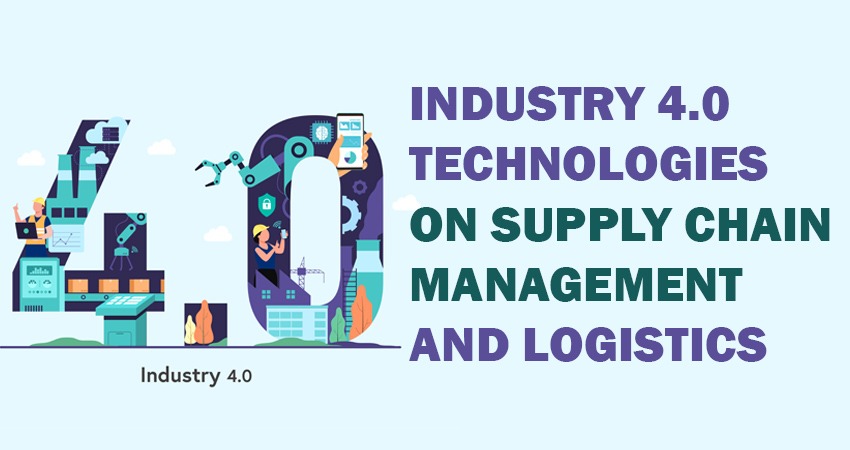
The global supply chain is the backbone
of the world's economy. It connects manufacturers, suppliers, and consumers
across continents. However, traditional supply chain systems are often plagued
by inefficiencies, delays, and high costs. These challenges have long demanded
innovative solutions, and Industry 4.0 technologies have risen to the occasion.
Industry 4.0, also known as the fourth
industrial revolution, is changing supply chain management and logistics in
extraordinary ways. It includes advanced technologies like artificial
intelligence, the Internet of Things, big data, blockchain, and robotics. These
all together enable business to optimize its operations, cut costs, and provide
seamless service to customers.
Industry 4.0
Changing Supply Chains from Reactive to Predictive
1. One of the most important changes brought about
by Industry 4.0 is from reactive to predictive supply chain management.
Traditionally, companies reacted to problems as they arose—whether it was a
delayed shipment, a stockout, or mismanaged inventory. Now, with Industry 4.0,
organizations can anticipate and address potential issues before they escalate.
2. IoT plays a central role in this predictive
approach. Smart sensors are embedded in devices and shipments to collect
real-time data that can provide actionable insights into every stage of the
supply chain. For instance, such sensors can track the location and condition
of goods in transit, monitoring factors like temperature, humidity, or
potential delays. If a problem arises, such as a temperature spike during the
transport of perishable items, the system automatically sends an alert. This
level of visibility ensures the quality is achieved and losses at minimum.
3. Logistics and supply chain management rely on
artificial intelligence to drive the efficiency and accuracy of operations. Big
data analysis lets AI identify complex patterns, predict requirements, and
decide on the better course of actions.
4. For instance, AI-powered tools can forecast
market trends, enabling businesses to anticipate high-demand periods and adjust
inventory levels accordingly. This minimizes the risk of stockouts during busy
seasons and prevents overstocking during slower months.
5. AI is also being used in logistics to optimize
delivery routes. Delivery trucks, equipped with AI-powered navigation systems,
take the most efficient routes, saving time, reducing fuel consumption, and
improving on-time delivery rates. This level of optimization not only reduces
operational costs but also enhances customer satisfaction.
Big Data for
Informed Decisions
Industry 4.0 is based on big data, which
enables companies to make decisions based on data. The data generated by IoT
devices, AI systems, and digital tools can be too voluminous to be analyzed.
However, advanced analytics tools can process such data and bring out
meaningful insights.
For instance, through big data, companies
can look at seasonal trends in demand. Retailers will be able to predict peak
periods of shopping to ensure they stock the right items. In addition, big data
gives businesses the chance to spot bottlenecks and underperforming suppliers
in the supply chain and then take corrective actions.
Increasing Transparency with Blockchain
Blockchain technology has revolutionized
the matter of transparency and trust in supply chain management. This
decentralized digital ledger records every step in the supply chain, producing
a secure and tamper-proof record.
Sensitive or high-value product
industries such as food, pharmaceuticals, and luxury goods find blockchain
quite helpful. A customer can track back a product to its source to ascertain
authenticity and ensure proper sourcing. In the food industry, for instance,
blockchain would be able to track the history of produce from farm to table so
that customers could have confidence in the safety and quality of foodstuffs.
The Automation
and Robotics transforming the operations
Automation and robotics take over the
management of warehouses and factories. The traditional functions like sorting,
packing, and handling stocks are carried out by automated systems. Robots are
always at work, faster than humans and do not make human mistakes hence
improving productivity.
This, using such technologies as robotic
arms and automated vehicles allows organizing the work process efficiently and
minimizing the number of employees. This assists the business to manage large
amounts of goods and at the same time satisfy the needs of the modern market.
Visit Engineer’s Heaven to know more about, and learn from the expert community
(Disclaimer: This statistics could be different in different part of World and Different timeline. this statistics has been generated based on data available till 2025 or relavant time span.)
how life would be impacted without engineers from various specialized fields
- Infrastructure: Civil engineers design, build, and maintain essential infrastructure like roads, bridges, dams, and buildings. Without them, our transportation networks would be rudimentary, buildings less safe, and urban planning chaotic.
- Water Resources: Civil engineers also handle water supply and sanitation systems. Without them, clean water would be scarce, and sanitation could be a major public health crisis.
- Urban Development: City planning and the development of sustainable communities would be hindered, leading to overcrowded and poorly organized living spaces.
- Machinery and Automation: Mechanical engineers design and develop machines used in industries, transport, and everyday life. Without them, there would be no cars, trains, or airplanes, and industrial processes would be inefficient and labor-intensive.
- Energy Systems: Mechanical engineers also work on power generation systems like turbines and engines. Without them, our ability to generate and efficiently use energy would be severely limited.
- Consumer Products: From home appliances to fitness equipment, many everyday items would be unavailable or far less effective.
- Power Generation and Distribution: Electrical engineers design and maintain the systems that generate and distribute electricity. Without them, we’d lack reliable power, leading to a return to pre-electricity lifestyles.
- Communication Systems: Electronics engineers develop the technology behind phones, computers, and the internet. Without their work, global communication would be nearly impossible.
- Automation and Control Systems: Modern factories and homes rely on automation for efficiency. Without these engineers, production and daily life would be far less efficient.
- Computing Devices: Computer engineers are behind the development of hardware and software that powers computers, smartphones, and other digital devices. Without them, we’d be without modern computing, crippling almost every industry.
- Networking and Internet: They also design the systems that make the internet possible. Without these, global connectivity and access to information would be severely restricted.
- Artificial Intelligence and Robotics: Advancements in AI and robotics, which are revolutionizing industries, wouldn’t exist without computer engineers.
- Pharmaceuticals: Chemical engineers are crucial in the production of medicines. Without them, the development and mass production of life-saving drugs would be impossible.
- Petroleum and Energy: They also work in refining petroleum and developing alternative energy sources. Without them, fuel would be less accessible, and energy innovation would stagnate.
- Food Processing: The food we eat often requires processing to be safe and palatable. Chemical engineers ensure that food products are safe, nutritious, and efficiently produced.
- Aviation: Aerospace engineers design and develop aircraft. Without them, air travel wouldn’t exist, drastically limiting global mobility.
- Space Exploration: They are also responsible for spacecraft and satellite technology. Without aerospace engineers, humanity’s exploration of space and our understanding of the universe would be non-existent.
- Defense: Many defense systems, including missiles and surveillance drones, rely on aerospace engineering. Without this expertise, national security could be compromised.
- Medical Devices: Biomedical engineers design and develop medical devices like pacemakers, MRI machines, and prosthetics. Without them, diagnosing and treating many conditions would be much harder or impossible.
- Tissue Engineering: Advances in tissue engineering and regenerative medicine are spearheaded by biomedical engineers. Without them, treatments that restore or replace damaged tissues wouldn’t be available.
- Healthcare Innovation: The continuous improvement of healthcare technologies, leading to better patient outcomes, depends heavily on biomedical engineers.
- Pollution Control: Environmental engineers develop systems to reduce pollution and manage waste. Without them, air, water, and soil contamination would be far worse, endangering human health and ecosystems.
- Sustainable Development: They also work on projects that aim to balance development with environmental protection. Without their expertise, sustainability efforts would falter, leading to resource depletion and ecological crises.
- Renewable Energy: Environmental engineers are key in developing and implementing renewable energy solutions, crucial for combating climate change. Without them, the transition away from fossil fuels would be significantly slower.
- Manufacturing Efficiency: Industrial engineers optimize production processes, ensuring that goods are made efficiently and cost-effectively. Without them, manufacturing would be slower, more expensive, and less reliable.
- Supply Chain Management: They also manage supply chains, ensuring that products are delivered on time and at the right cost. Without industrial engineers, logistics would be chaotic, leading to shortages and inefficiencies.
- Quality Control: Ensuring that products meet quality standards is another key role. Without industrial engineers, product defects would be more common, affecting safety and customer satisfaction.
- Advanced Materials: Materials engineers develop new materials with specific properties for various applications. Without them, innovations in electronics, construction, and healthcare (like biodegradable implants) would be impossible.
- Metallurgy: They also work on the extraction and processing of metals. Without them, we would lack the materials needed for building infrastructure, manufacturing tools, and producing electronics.
- Nanotechnology: Advancements in nanotechnology, leading to innovations in fields like medicine, electronics, and energy, are driven by materials engineers. Without them, many cutting-edge technologies would not exist.
- Farm Equipment: Agricultural engineers design and develop machinery used in farming. Without them, modern farming methods wouldn’t be possible, leading to less food production and higher food prices.
- Irrigation and Water Management: They also design systems for efficient water use in agriculture. Without these systems, crop yields would be lower, and water resources could be wasted.
- Sustainable Farming Practices: Agricultural engineers are involved in developing sustainable farming practices to ensure food security. Without them, agriculture would struggle to meet the demands of a growing population.
- Shipbuilding: Marine engineers design and maintain ships and submarines. Without them, maritime trade and naval defense would be greatly diminished.
- Offshore Engineering: They also work on offshore structures like oil rigs and wind farms. Without marine engineers, exploiting marine resources and developing offshore energy would be nearly impossible.
- Oceanographic Technology: Marine engineers contribute to technologies that explore and monitor the ocean. Without their work, our understanding and stewardship of marine environments would be limited.
- Soil and Rock Mechanics: Geotechnicalengineers study the behavior of earth materials. Without them, constructing stable foundations for buildings, bridges, and tunnels would be much riskier.
- Landslide and Earthquake Mitigation: They also develop solutions to mitigate landslides and earthquake impacts. Without geotechnical engineers, many areas would be unsafe for habitation.
- Mining Engineering: Extraction of minerals and resources from the earth is guided by geotechnical principles. Without these engineers, mining would be far less efficient and more dangerous.
Without engineers from these specialized faculties, the world would lack the technological advancements, infrastructure, and innovations that make modern life possible. Society would struggle with basic needs like shelter, transportation, healthcare, and communication, resulting in a world that is less safe, less connected, and less prosperous.
there is huge gap between these two and thats actually leads to unemployment in engineering fields although there are lots of scope to work as an engineer but still lots of vacancy is not getting fulfilled and people get unemployed even though they got degree.
Academic Engineering and Industrial Engineering represent two distinct spheres within the broader field of engineering, each with its own focus, goals, and approaches. Here's a breakdown of the key differences between the two:
1. Purpose and FocusAcademic Engineering:
- Purpose: Focuses on the theoretical, scientific, and educational aspects of engineering. It aims to expand knowledge through research, teaching, and the development of new theories and methodologies.
- Focus: In-depth exploration of fundamental principles, mathematical modeling, simulations, and theoretical analysis. Academic engineers often work on advancing the frontiers of knowledge in their field.
Industrial Engineering:
- Purpose: Concerned with applying engineering principles to optimize processes, systems, and organizations within industries. The goal is to improve efficiency, productivity, and quality in real-world applications.
- Focus: Practical implementation of engineering knowledge in manufacturing, logistics, supply chain management, and operations. Industrial engineers work to solve practical problems and enhance industrial processes.
Academic Engineering:
- Research: Typically involves basic or fundamental research aimed at discovering new knowledge without immediate commercial application. Academic research often leads to publications in scientific journals and conferences.
- Development: May involve the development of new theories, algorithms, or techniques that contribute to the academic body of knowledge. Development is usually more conceptual and less concerned with immediate industrial application.
Industrial Engineering:
- Research: Focuses on applied research that directly addresses industry-specific challenges. Research is often driven by the need to solve specific problems or improve existing processes within a company or sector.
- Development: Involves the design, implementation, and optimization of processes, systems, or products. Development is closely tied to practical outcomes and often leads to new products, improved systems, or increased efficiency.
Academic Engineering:
- Application: Knowledge is applied primarily in an educational setting (teaching) or within research labs. The results may influence industrial practices but are often several steps removed from direct application.
- Outcome: Contributes to the theoretical foundation and future technologies. The impact on industry is typically long-term, as academic findings may take years to be applied.
Industrial Engineering:
- Application: Directly applies engineering principles to solve problems within industry. Industrial engineers work on projects that have immediate or short-term impacts on the company’s operations.
- Outcome: Results in tangible improvements in processes, cost savings, enhanced productivity, and quality within a relatively short timeframe.
Bridging the gap between academic engineering and industrial engineering can enhance innovation, improve practical outcomes, and ensure that theoretical advances translate effectively into real-world applications. Here are some strategies to help fulfill this gap:
1. Collaborative Research Initiatives- Industry-Academia Partnerships: Encourage collaborations between universities and industry to work on joint research projects. Companies can provide practical problems, while academic researchers can offer theoretical insights and advanced methodologies.
- Sponsored Research: Industries can sponsor research at universities focused on specific challenges they face. This ensures that academic research is aligned with industrial needs.
- Academic Internships: Encourage students and faculty to engage in internships or sabbaticals in industrial settings. This exposes academics to real-world challenges and gives them practical insights that can inform their research.
- Industry Fellowships: Create fellowships where industry professionals can spend time in academic institutions, sharing their practical experience and learning about the latest research developments.
- Problem-Based Learning: Integrate real-world industrial problems into the curriculum. Students can work on these as part of their coursework, bridging the gap between theoretical learning and practical application.
- Guest Lectures and Workshops: Invite industry professionals to give guest lectures or conduct workshops, bringing practical insights into the academic setting.
- University Research Centers: Establish research centers within universities that focus specifically on applied research. These centers can serve as hubs for industry-academic collaboration, focusing on solving practical engineering problems.
- Technology Transfer Offices: Universities can set up offices dedicated to technology transfer, helping to commercialize academic research and bring it to the market.
- Industry-Academic Roles: Encourage professionals to pursue dual careers in both academia and industry. For example, an academic might spend part of their time conducting research at a university and part of their time consulting for industry.
- Adjunct Professorships: Industry professionals can be appointed as adjunct professors, allowing them to contribute to academic teaching and research while remaining active in the industry.
- Joint Funding Programs: Governments and funding bodies can create programs that specifically support projects involving both academic institutions and industrial partners.
- Innovation Grants: Provide grants for collaborative projects that require academic research to be applied in an industrial context. This encourages both parties to work together toward a common goal.
- Conferences and Workshops: Organize events that bring together academics and industry professionals to share knowledge, discuss challenges, and explore collaborative opportunities.
- Online Platforms: Create online forums, databases, and platforms where industry and academia can share research findings, case studies, and best practices.
- Industry-Driven Curriculum: Involve industry representatives in curriculum development to ensure that academic programs are aligned with current industry needs and trends.
- Continuous Education Programs: Offer continuing education and professional development programs that allow industry professionals to stay updated with the latest academic research and engineering advancements.
- Post-Implementation Feedback: After implementing academic research in an industrial setting, gather feedback on its effectiveness. This feedback can inform future research and help academics understand the practical challenges of implementation.
- Industry Advisory Boards: Establish industry advisory boards for academic departments. These boards can provide insights into current industry needs and guide academic research priorities.
- Incubators and Accelerators: Universities can establish incubators and accelerators that support the commercialization of academic research. These can provide resources, mentorship, and connections to industry.
- Spin-Off Companies: Encourage the creation of spin-off companies from academic research, which can directly apply innovative ideas in a commercial context.
- Document and Share Successes: Publish case studies and applied research papers that detail successful industry-academic collaborations. Sharing these success stories can inspire more partnerships.
- Applied Engineering Journals: Promote the creation or use of academic journals that focus specifically on applied engineering, where research findings are directly related to industrial applications.
By implementing these strategies, the gap between academic and industrial engineering can be significantly reduced, leading to more effective innovation and practical outcomes that benefit both academia and industry.
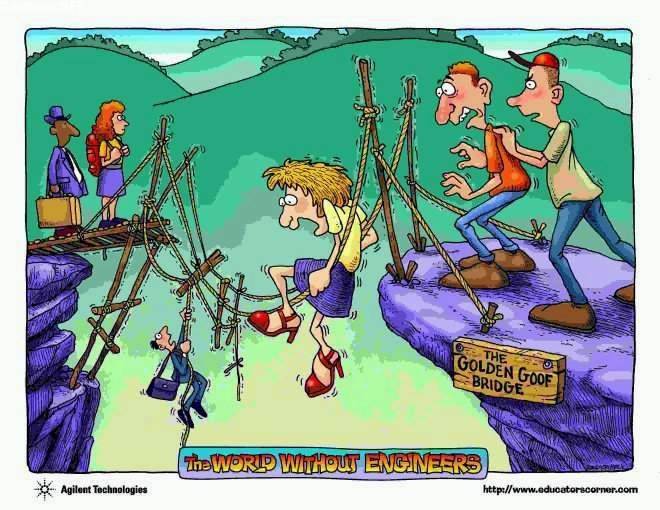
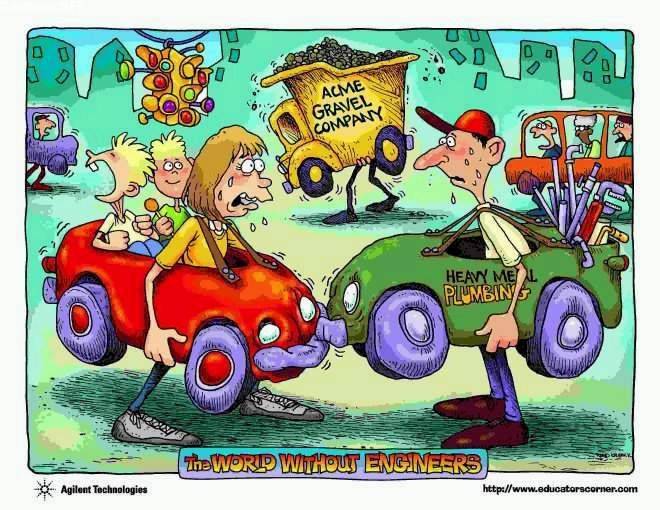
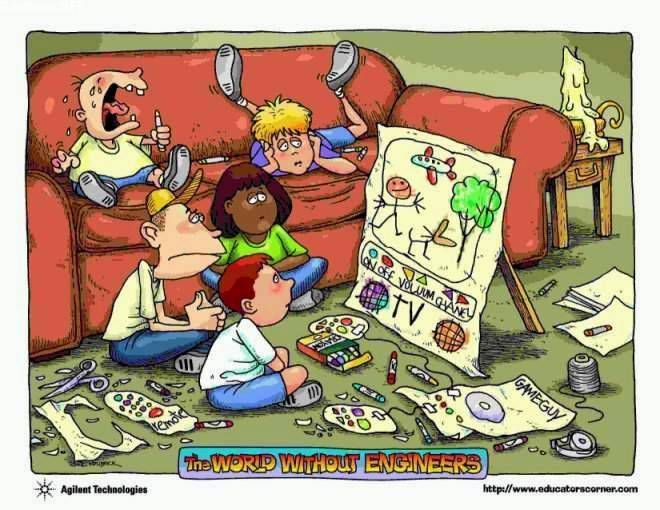
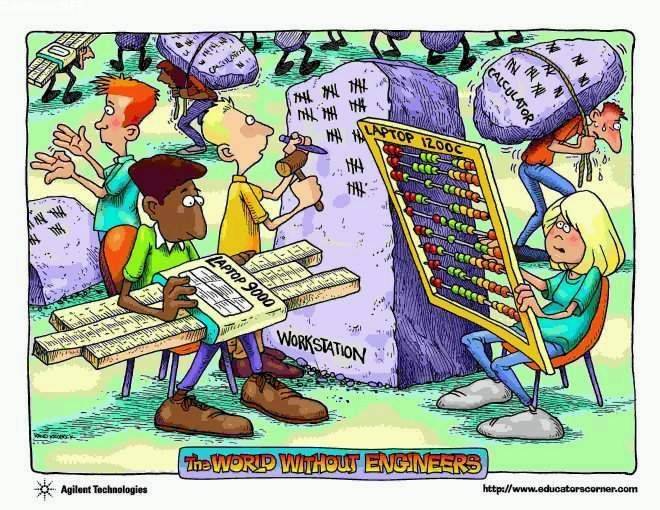
.jpeg)
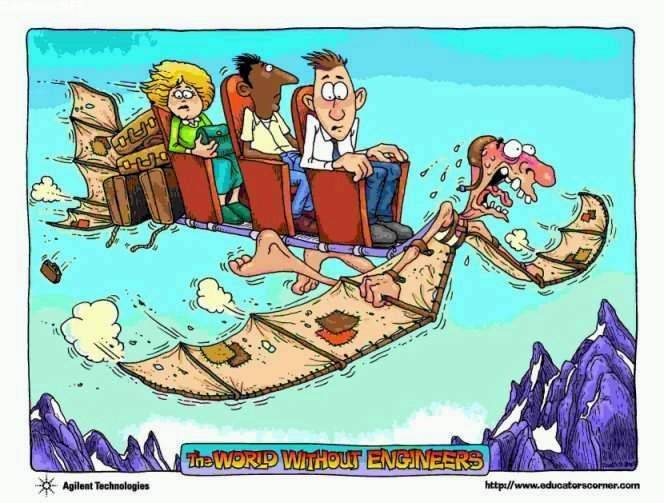
.jpeg)
.jpeg)
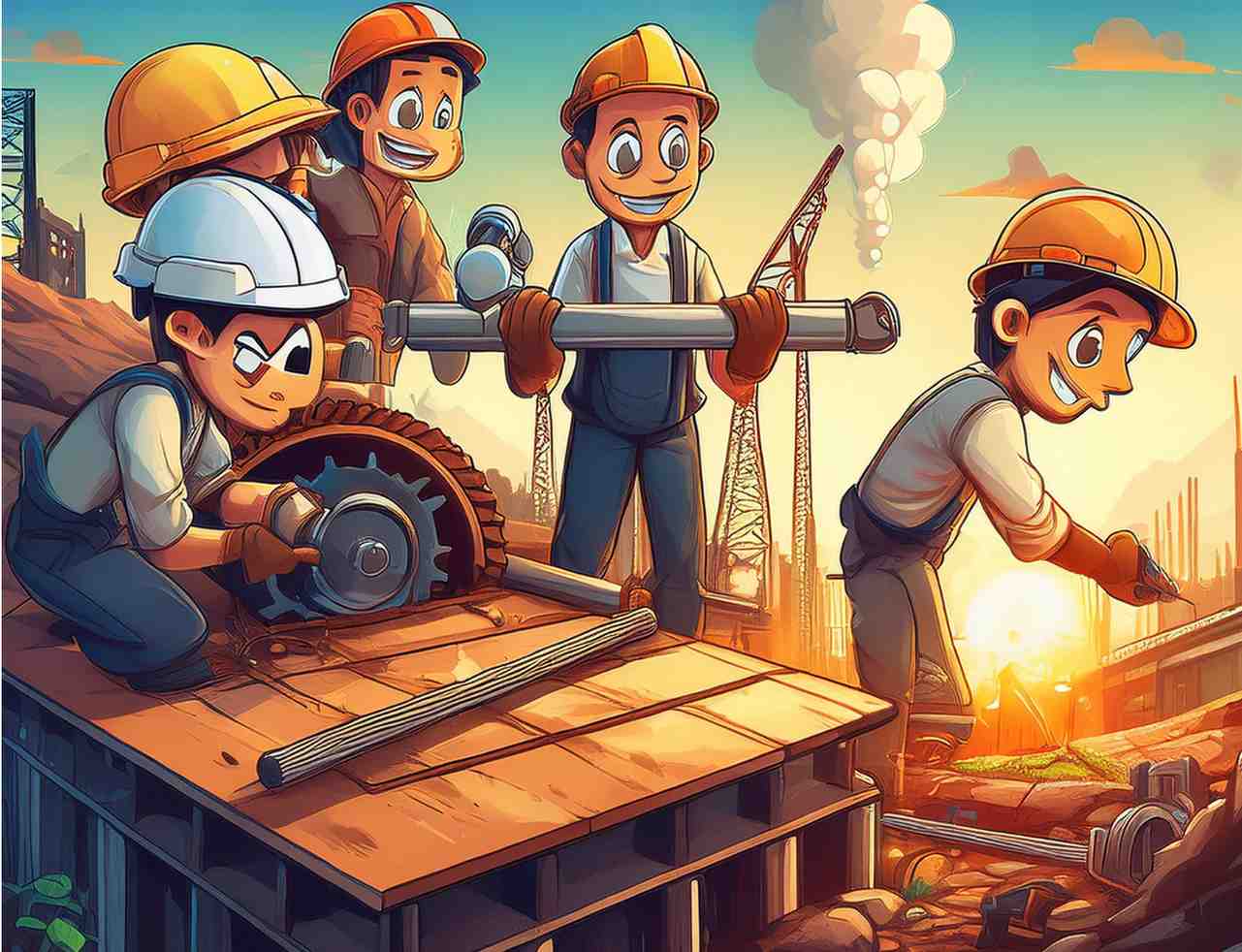
.jpeg)


.jpeg)
